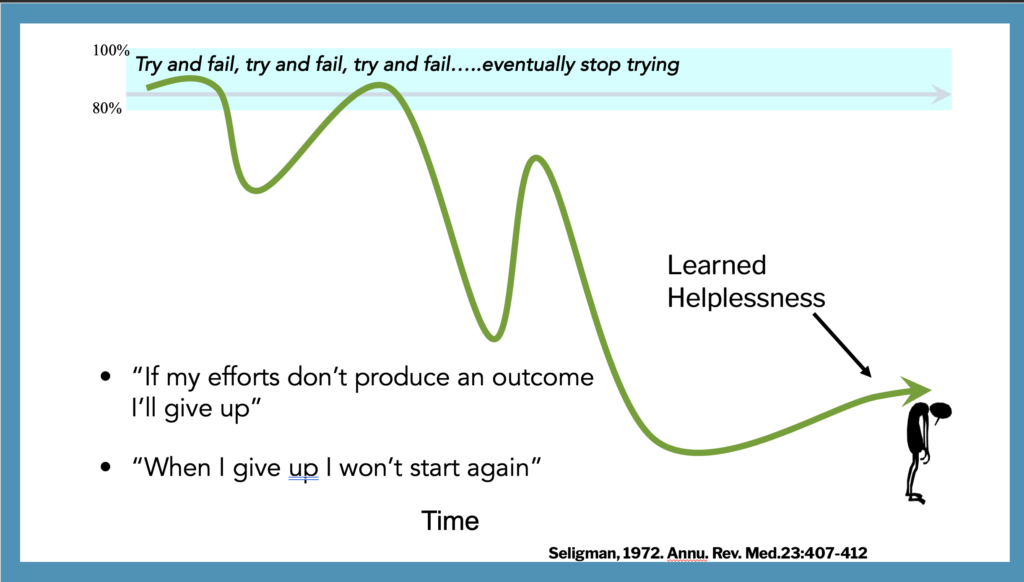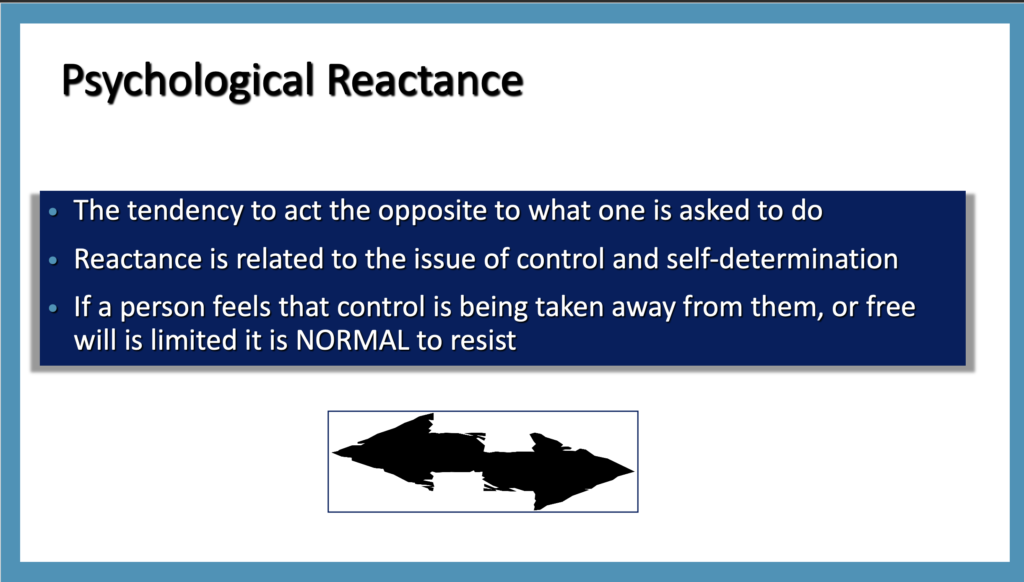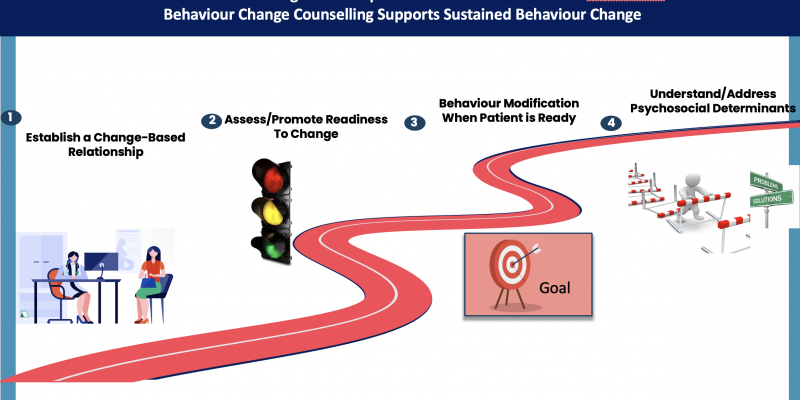about this training site
HCPs are trained to be experts and to use their skills to guide patients toward evidence-based outcomes. The main way HCPs have been trained to do this is by using evidence to make recommendations and following up with education and support. Unfortunately, unless the patient is ready and able to act on these recommendations this "TEACH and TELL" relational dynamic can be ineffective.
The Dangers of Teach and Tell When The Patient is Not Ready Or Able
#1: The Patient Will Try FOR The HCP
If the patient isn’t acting on their own motivation but is trying to do what the HCP wants they are unlikely to overcome the barriers to change, or sustain the behaviour long enough for the behaviour to become habit and intrinsically motivated. This can promote Learned Helplessness (effort doesn’t produce outcome)
#2: The Patient will RESIST The HCP
If the patient isn’t ready or able they may become defensive and RESIST the clinician; potentially becoming DEMOTIVATED (as in “Don’t tell me what to do!”). This can evoke Psychological Reactance
LEARNED HELPLESSNESS

PSYCHOLOGICAL REACTANCE

“Behaviour change counselling is an evidence-informed relational style that: focuses on building a change-based relationship; helps the patient develop the motivational readiness to change; implements behaviour modification strategies when ready; and takes into consideration psychosocial factors that determine behaviour.”:

Michael Vallis, PhD R Psych
Collaborate and Empower is more likely to promote sustained behaviour change than Teach and Tell
Collaborate and Empower can be enacted by acquiring 4 counselling skills
Establishing a Change-Based Relationship
Defining Behaviour, Assessing and Promoting Readiness
Behaviour Modification When Ready
Addressing PsychoSocial Determinants

